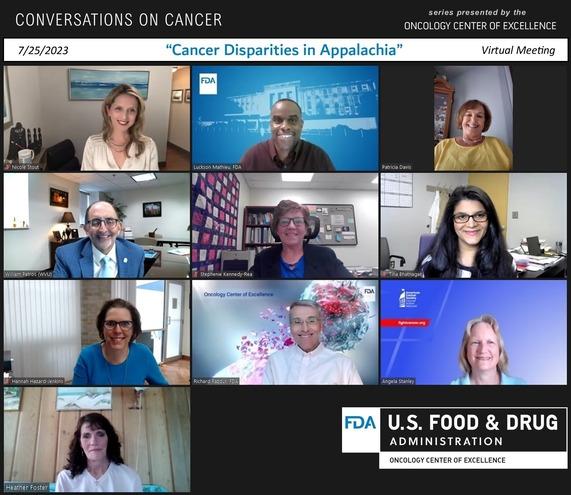Addressing Geographic Disparities: How the FDA Oncology Center of Excellence Supports the National Cancer Plan
Luckson Mathieu, M.D., Senior Clinical Reviewer, FDA Division of Oncology 2
Where people live can affect the disease burden they face and adversely impact their ability to access screening or treatments. The National Cancer Plan represents a commitment to achieving a society where most cancers are prevented and where every person diagnosed with cancer lives a full and active life.
The FDA Oncology Center of Excellence embraces this aspirational commitment through various projects and initiatives, like Project Community. This public health outreach program helps patients living with cancer, survivors, advocates, families, and people living in underserved urban and rural communities who are at greater cancer risk.
The goal of Project Community is to increase communication between underserved people and medical professionals in communities nationwide, to foster understanding and awareness to reduce cancer risk and increase survival. Project Community accomplishes this through efforts like Conversations on Cancer, a series of public panel discussions. Project Community aligns with the National Cancer Plan goals to Eliminate Inequities, Engage Every Person, and encourage all patients and families to learn to Detect Cancers Early.
Project Community recently hosted a virtual Conversation on Cancer focused on the factors contributing to cancer disparities within the Appalachia region. This Eastern U.S. region spanning several states has higher mortality rates than the rest of the nation in seven of the leading causes of death: cancer, heart disease, chronic obstructive pulmonary disease, injury, stroke, diabetes, and suicide. Not all communities have benefited from advances in cancer prevention and precision cancer care, and cancer disparities persist in Appalachia. The conversation brought together patients, patient advocates, community providers, and members of the FDA to discuss the factors contributing to cancer disparities and focus on ongoing interventions and opportunities in bridging the cancer chasm in rural health inequity.
In alignment with the National Cancer Plan, Project Community’s Conversations on Cancer facilitated collaboration, communication, outreach, and partnerships not only in the cancer research and care community, but across various sectors of society, with the goal to make progress to end cancer as we know it.
